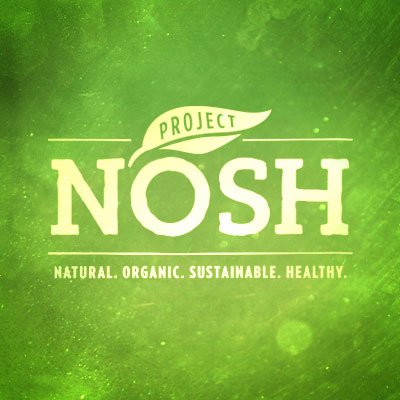
Further Damage to the National Organic Standards Board Casts a Shadow on the Important Wins for Organic in the Farm Bill
(Photo courtesy of U.S. House Committee on Agriculture)
For those of you who want a condensed TLDR version of how organic did in the 2018 Farm Bill, here is what you need to know.
* WINS — More money: for organic research; to fight against organic fraud; for technology upgrades; and to help fund the organic certification cost-share program (helps offset certification expenses for farmers).
* LOSSES — Changes to the National Organic Standards Board (NOSB) will make it harder (1) for small organic farmers to be fairly represented and (2) to remove synthetic ingredients in organic.
* OVERALL — Some definite wins and increased funding in important areas, which should help the industry grow its top-line revenues. However, changes to the NOSB may very well hurt the integrity of the organic seal, and interests of corporate agribusiness were put ahead of organic consumers and small organic farmers.
For a more detailed analysis of how organic did in the Farm Bill and what it means for our industry, a longer explanation is below.
—
With the 2018 Farm Bill having been approved by Congress and now awaiting President Trump’s signature, organic saw some real victories, suffered significant defeats and dodged a few bullets which could have been utterly disastrous.
Here are the key points:
THE WINS
* The Organic Agriculture Research and Extension Initiative (OREI) got a big boost and saw an increase of its funding to “baseline” status ($50 million annually) by 2023, which will help ensure the continuation of this program beyond the life of the current Farm Bill. This money will be used to help fund cutting-edge research into organic practices and production systems.
* The incredibly important National Organic Certification Cost Share Program was saved. Between funds that were not used in the last Farm Bill and new funds in this Farm Bill, $40.5M is available to help offset the costs of organic farmers obtaining organic certification.
* $5 million for technology upgrades and data-tracking for fraudulent organic imports, along with increased enforcement authority to crack down on fraudulent organic products from abroad.
* $5 million for the Organic Production and Market Data Initiative, which is critical for policymakers, researchers and industry participants to understand organic production and market data, track trends and create risk management tools.
THE LOSSES
The National Organic Standard Board (NOSB), the 15-member advisory board that makes recommendations to the USDA about rules, regulations and ingredients, suffered two key losses in the Farm Bill.
1) Executives of farm companies are now allowed to sit in farmer-designated seats on the NOSB. This has the potential to dilute the voice of independent organic farmers while favoring the interests of large organic production companies. For example, an executive at a large farm company with zero first-hand knowledge of farming could now be holding a farmer-designated seat on the board.
2) There is a new provision about NOSB voting procedures which govern decisions about which synthetic materials are allowed in organic production and processing. This will make it easier for synthetic materials to stay on the National List for decades.
THE BULLETS WE DODGED
* A House version of the Farm Bill earlier this year wanted to eliminate the National Organic Certification Cost Share Program, which would have resulted in a good number of farmers dropping out of organic altogether. With less than 1% of American farmland grown as organic and our heavy reliance on organic imports, this would have been beyond disastrous. Fortunately, this cost-share program was spared.
* Two proposed measures to further weaken the NOSB never made it into the Farm Bill.
1) A provision requiring the NOSB to establish a task force to review any petition regarding materials that have been approved by FDA or EPA and to allow the agency to consult with the NOSB about these materials. This would have given the EPA and FDA undue influence over the NOSB, particularly in regards to approving synthetic materials in organic.
2) A provision that allows the Secretary of the USDA to create an expedited process for reviewing materials for inclusion on the National List that are related to post-harvest handling and food safety. This could have prevented the NOSB from spending the appropriate amount of time researching, discussing and analyzing a proposed ingredient or material.
OVERALL TAKEAWAY
Without question, there were some major victories in this Farm Bill — organic research funding, certification cost-share for organic farmers, and more money for data collection and to fight fraud — and these wins must be celebrated.
However, as organic continues to grow, it is imperative that the integrity of the organic seal be protected ever more fiercely. Yet, the interference of Congress in procedural issues at the NOSB level will only weaken the organic seal and make it that much easier for synthetic ingredients to stay in organic. And the only reason that Congress is taking these measures is because of corporate lobbyists who want to weaken organic standards.
“What Congress is doing is codifying what the NOP (National Organic Program) has been doing already — putting agribusiness representatives in farmer-designed seats. Previously, it was illegal, and now they have made it legal. Furthermore, the NOP didn’t follow the standard review process when it changed voting procedures for the Sunset provision (the process for allowing synthetic and other specially-approved materials in organic for a 5-year period). Now, Congress has changed the law to provide legal cover to the USDA,” said Francis Thicke, former member of the NOSB and Policy Committee Chair of the Organic Farmers Association.
What politicians and many current NOSB members seem to forget is that organic is a voluntary program. No company or farmer is forced to participate in organic. A common phrase that is echoed far too often among a select number of current NOSB members is that “we shouldn’t take away another tool from the toolbox.” This is the absolute wrong approach.
In no way should organic be discriminatory in terms of who participates. Instead, it should be very selective in the methods and ingredients that are allowed in the program.
The 2018 Farm Bill will undoubtedly help facilitate organic’s top-line growth in the years ahead but at what expense is the real question that remains to be answered.
—
Numerous organic trade and farmer groups played a critical role in advocating on behalf of organic interests in this Farm Bill, and tremendous gratitude goes out to these organizations. Their tireless work paid very big dividends.
In terms of timing, both the Senate and House passed the Farm Bill, and all indications are that President Trump will sign the legislation once it lands on his desk, which could happen this week.
To see a full scorecard of the Farm Bill, which was produced by the National Organic Coalition, click HERE.
 |
Have a great day! 
Max Goldberg, Founder |
Quick Hits
* Congrats to Gunnar Lovelace, co-founder of Thrive Market, for raising $30M for his next venture Good Money!
* NBA star Dwight Howard has signed on to be an executive producer for Percy, a movie about small-town Saskatchewan farmer Percy Schmeiser who challenges a major conglomerate (Monsanto) when the company’s GMO canola is discovered in the 70-year-old farmer’s crop.
* California organic certification group CCOF has promoted Kelly Damewood to CEO of the organization.
* At two Whole Foods stores in New Jersey, there is a machine that makes fresh organic almond milk on-demand.
* Michigan’s pressed organic juice brand Drought has opened a new location in Detroit’s new $25M Shinola hotel.
New Organic Products
Organic Coconut Water by Thrive Market
Sustainably harvested from the Philippines and sourced directly from farmers, Thrive Market’s new organic coconut water contains no added preservatives or sugar. This product is also a personal favorite of Jeremiah McElwee, Thrive’s Senior Vice President of Merchandising and Product Development.
Moringa Coconut Wraps by NUCO
These organic coconut wraps by NUCO contain only three ingredients — coconut meat, coconut water, and unrefined virgin coconut oil — plus the super-nutritious moringa. They are also gluten-free, grain-free and raw, and contain 70 calories per wrap and 4g of net carbs.
DragonWell Green Tea by Gratitude Tea
Gratitude Tea, which is pan-roasted, produced in small batches and comes in glass bottles, has launched with five flavors of organic DragonWell green tea — mint, wildberry, peach, blood orange, and original.
Want your product profiled here? Learn more
Weekly News Summaries

Special Report: How Hydroponic Agribusiness and the USDA Diluted Organics by Sanctioning Soil-less Growing
The Cornucopia Institute has just released a comprehensive report about how the allowance of hydroponics has diluted the organic seal. The organization also has come out with a hydroponics buyer's guide, important for people who want to avoid organic hydroponic produce.

Erin Brockovich: The Weedkiller in our Food is Killing Us
By Erin Brockovich
The acclaimed environmental activist highlights the serious health risks of glyphosate and the action we need to take with politicians.

365 Stores Continue to be Rolled Out, Cashiers May Soon be Replaced
By Colin Pope
Amazon appears to still be bullish on Whole Foods' 365 smaller-store format, and "check-out free technology" may soon be implemented.


Organic is Affordable at Toronto's Pay-What-You-Can Grocery Store
By Anne Gaviola
A grocery store in Toronto allows anyone to help themselves to organic produce and other food, and the cost is whatever shoppers decide.

Lawyers Take Home $503M in GMO Corn Settlement
By Bonnie Eslinger
A $1.5 billion class-action lawsuit settlement against Syngenta was approved by a Kansas federal judge, of which $503M will go to the lawyers.
Whole Foods Ranked Worst on Cancer-Linked Package Chemicals, Removes Products in Question
By Tiffany Kary and Deena Shanker
Whole Foods, which ranked worst in a study of five major U.S. grocery chains for chemicals it uses in packaging at its popular hot-food bar, said it has removed all of the coated paper products in question and has begun looking for new biodegradable packaging.


Industrial Hemp May Soon be Legal But This is Not Necessarily the Case for CBD-Food Products
By Elaine Watson
With industrial hemp set to be removed from Schedule I of the Controlled Substances Act, CBD will not immediately be legal in foods, beverages and supplements.

Former Whole Foods Co-CEO Invests in Cece's Veggie Co
By Carol Ortenberg
Walter Robb has taken an undisclosed stake in Cece's Veggie Co, a Texas-based producer of organic meal kits and vegetable noodles.
The material in this newsletter is copyrighted and may be reprinted by permission only. All requests must be in writing. Please use our contact form to request republication rights.
Newsletter Archive
Quick Hits
* Congrats to Gunnar Lovelace, co-founder of Thrive Market, for raising $30M for his next venture Good Money!
* NBA star Dwight Howard has signed on to be an executive producer for Percy, a movie about small-town Saskatchewan farmer Percy Schmeiser who challenges a major conglomerate (Monsanto) when the company’s GMO canola is discovered in the 70-year-old farmer’s crop.
* California organic certification group CCOF has promoted Kelly Damewood to CEO of the organization.
* At two Whole Foods stores in New Jersey, there is a machine that makes fresh organic almond milk on-demand.
* Michigan’s pressed organic juice brand Drought has opened a new location in Detroit’s new $25M Shinola hotel.



